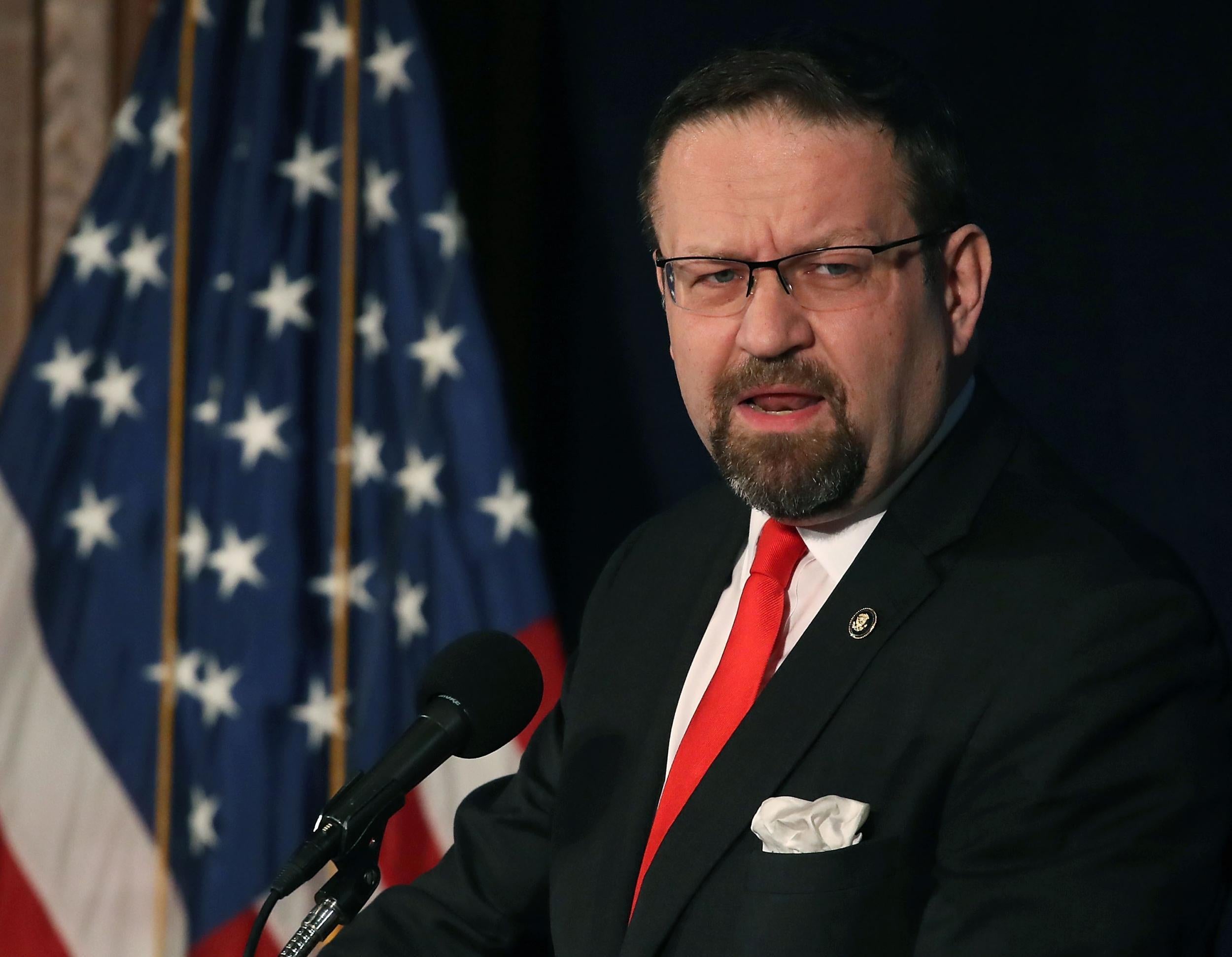Sebastian Gorka said white supremacists were 'not the problem' days before Charlottesville
'Go to Sinjar. Go to the Middle East, and tell me what the real problem is today,' Mr Gorka says

Your support helps us to tell the story
From reproductive rights to climate change to Big Tech, The Independent is on the ground when the story is developing. Whether it's investigating the financials of Elon Musk's pro-Trump PAC or producing our latest documentary, 'The A Word', which shines a light on the American women fighting for reproductive rights, we know how important it is to parse out the facts from the messaging.
At such a critical moment in US history, we need reporters on the ground. Your donation allows us to keep sending journalists to speak to both sides of the story.
The Independent is trusted by Americans across the entire political spectrum. And unlike many other quality news outlets, we choose not to lock Americans out of our reporting and analysis with paywalls. We believe quality journalism should be available to everyone, paid for by those who can afford it.
Your support makes all the difference.Just days before a white supremacist rally resulted in the death of three people in Virginia, a White House adviser claimed that white supremacists were “not the problem” in America.
Sebastian Gorka, a deputy assistant to the president with a murky White House role and a controversial history, appeared on the Breitbart News Daily radio show to discuss the real threat to the US – radical Islamic terror.
“It’s this constant, ‘Oh, it’s the white man. It’s the white supremacists. That’s the problem.’ No, it isn’t, Maggie Haberman,” Mr Gorka said, referring to the prominent New York Times reporter.
He added: “Go to Sinjar. Go to the Middle East, and tell me what the real problem is today. Go to Manchester.”
Mr Gorka was responding to the backlash over his recent comments on MSNBC, in which he claimed there was “no such thing as a lone wolf” and insisted that there “has never been a serious attack or a serious plot that was unconnected from ISIS or al Qaeda”.
Mr Gorka's critics pointed to the 1995 Oklahoma city attack, in which two white men bombed a federal building in Oklahoma City, killing 168 people and injuring hundreds more. Mr Gorka dismissed this point as outdated, saying that the attack took place more than 20 years ago.
“Talk to me about the last 60 years of hundreds of thousands of people killed in the middle east by jihadis,” he told Breitbart Daily News.
Three days later, a man accused of being a Nazi sympathiser allegedly hit and killed a counter-protester at a white supremacist march.
The man, James Alex Fields Jr, was attending a Charlottesville, Virginia rally protesting the removal of a Confederate monument. Police claim he ran his Dodge Charger into a crowd of counter-protesters at the rally, killing a 32-year-old woman and injuring at least 19 others.
The rally – in which attendees were seen carrying Nazi flags and chanting “Jew will not replace us” – devolved into violence after the Virginia governor attempted to shut it down. Police say 35 people were injured over the weekend.
Attorney General Jeff Sessions described the car attack as “terrorism” in an interview with ABC’s “Good Morning America” on Monday.
“You can be sure we will charge and advance the investigation towards the most serious charges that can be brought because this is unequivocally an unacceptable evil attack,” he said.
A 2013 study from the United States Military Academy found right-wing extremists were responsible for substantially more domestic terrorist attacks since 9/11 than American Muslims.
The study concludes that “a contentious political climate and ideological political empowerment play important roles in increasing the volume of violence”.
“Thus, it is not only feelings of deprivation which motivate those involved in far-right violence,” the authors wrote, “but also the sense of empowerment which emerges when the political system is perceived to be increasingly open to far right ideas.”
Join our commenting forum
Join thought-provoking conversations, follow other Independent readers and see their replies
Comments